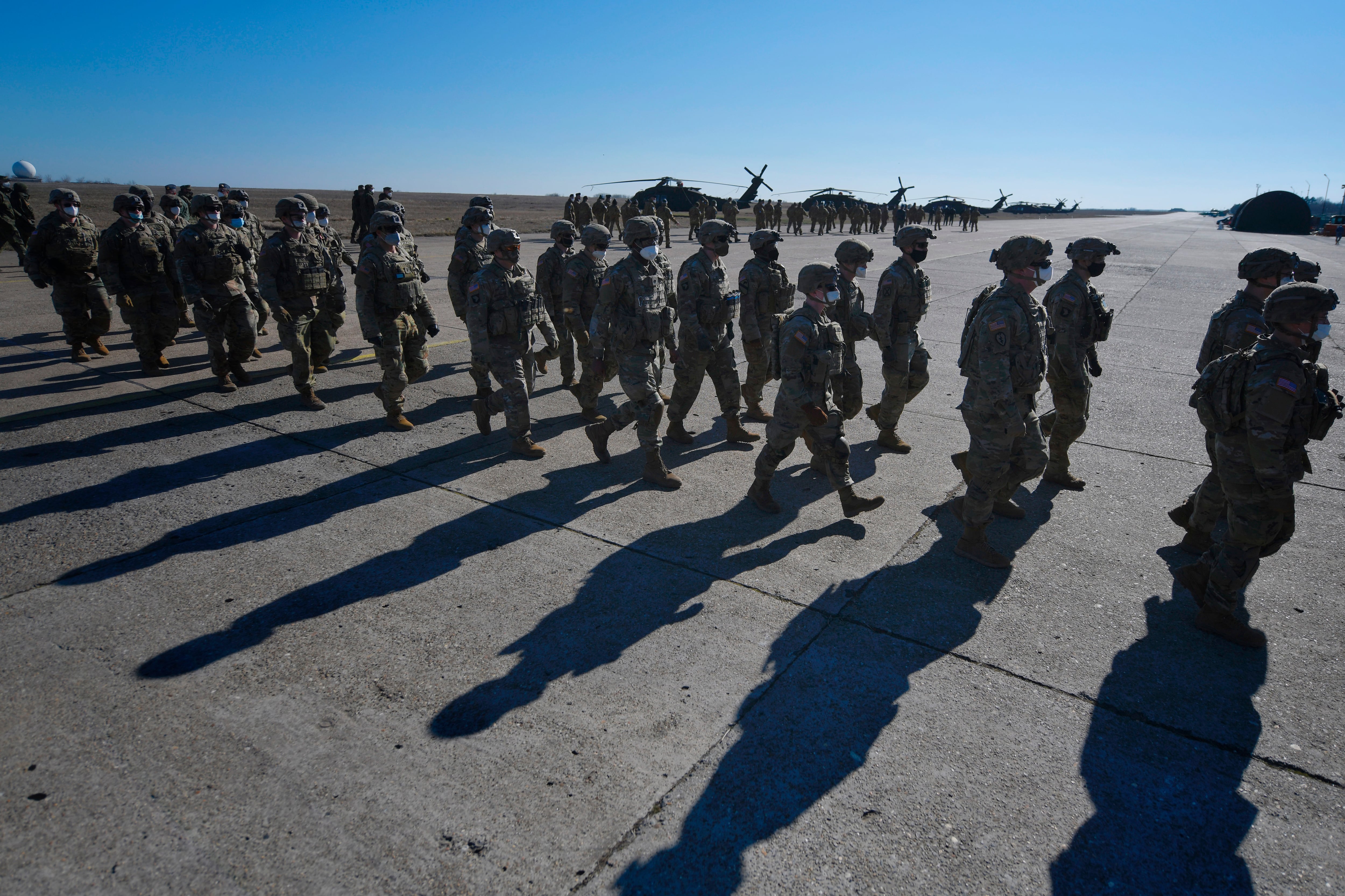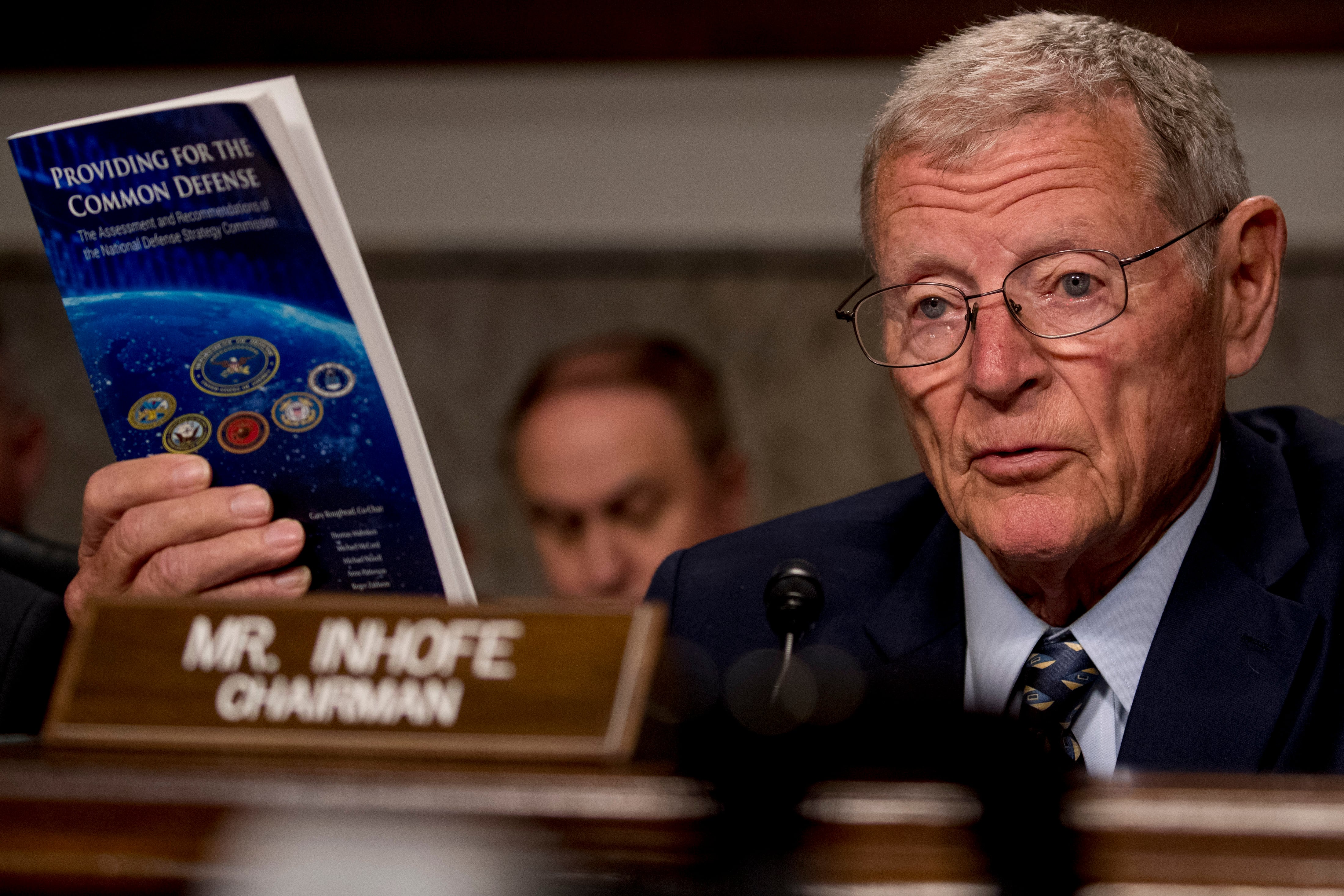Republican leaders are pushing for a 5% increase in defense spending in the White House’s upcoming fiscal 2023 budget proposal, but the chairman of the Senate Armed Services Committee argued Wednesday big boosts for the military won’t necessarily mean improved national security.
“The budget should be driven by strategy, and not strategy driven by the budget,” Sen. Jack Reed, D-R.I., told reporters during a roundtable. “One of the problems [with the budget] is that too often we just pick a number, rather than say, ‘This is really what we have to do and these are the priorities.’
“As a result, we sometimes don’t put in the type of incentives so we will make decisions that are effective for national defense.”
President Joe Biden is expected to unveil his budget recommendations for fiscal 2023 on Monday. Even though the current fiscal year began Oct. 1, Congress only recently finalized its spending plans for FY22.
RELATED

The final budget deal included about $751 billion in defense funding, an increase of about 5%. In a letter to the White House Wednesday, 40 Republican members of the House and Senate Armed Services committees urged the administration to repeat that kind of increase next year.
“This is a crucial period for our national security,” the letter stated. “If we do not make the investments our military needs today, we will not be able to defend our nation or our allies in the future. The security of the free world depends on a credible American military.”
Last year, the White House proposed only a small increase in defense spending in its initial budget, which critics attacked as effectively a cut for military planners given inflation.
Progressive Democrats praised the move as a way to rein in ever-growing military spending and prioritize other domestic programs instead.
But over their objections, moderate Democrats and Republicans ultimately added significantly more money to the defense accounts. The latest GOP letter is designed to start the fiscal 2023 defense budget debate at a higher target than last year.
The Republican signers argued the money is needed for upgrades to cyber defense and the National Nuclear Security Administration, as well as “growing our naval and projection forces” and modernizing the rest of the fighting force.
“Congress acted in a bipartisan manner to provide nearly $30 billion more than you requested,” the letter stated. “We hope that action convinces you that overwhelming political support exists for increasing immediate investment in our national defense.”
But Reed — who supported the higher defense spending levels in last year’s budget discussions — said lawmakers shouldn’t automatically assume the Defense Department needs hefty budget increases each year.
“We have lots of legacy systems which we maintain, in many cases, because of political choices rather than policy or strategy aspects,” he said. “We have to look at them. Are they still functional? Do we still need them?
“Let’s look at the strategy. Let’s look at the threats which drive strategy and then let’s see if we have a budget that meets those threats.”
RELATED

Reed would not identify the figure he wants for the total defense budget, but he said getting the budget finished in a timely manner should be a top priority for both parties, especially after the late completion of the current year spending plan.
“We’ve gotten into a very bad habit over the last several years with getting the budget” done on time, he said.
“Most services now, regrettably, don’t plan to do anything in the fourth quarter of the new fiscal year because they assume they won’t have a budget. … That’s not good and it’s also not an efficient way to spend money.”
Reed said he is hopeful this year’s work on the defense appropriations and authorization bills can be finished in early fall, even with the late release of the White House’s budget suggestions.
Leo covers Congress, Veterans Affairs and the White House for Military Times. He has covered Washington, D.C. since 2004, focusing on military personnel and veterans policies. His work has earned numerous honors, including a 2009 Polk award, a 2010 National Headliner Award, the IAVA Leadership in Journalism award and the VFW News Media award.






